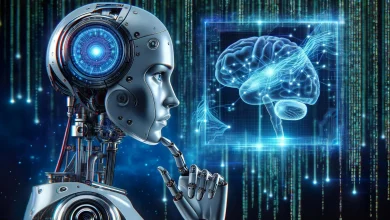
Can AI Develop a Personality—and Should It?
As AI personality grows more advanced, experts debate whether giving machines traits like humor and emotion is wise—or dangerous.
We’ve come a long way from emotionless, robotic assistants. Today’s AI personality models are being trained not just to respond accurately, but to do so with style—sometimes sarcastic, sometimes sweet, and increasingly, eerily human. Thanks to advances in large language models and emotional datasets, AI can now mimic tone, style, and even humor.
In fact, researchers have started building AI that reflects specific personality traits. Some systems can be designed to sound more empathetic, confident, or even shy, depending on the intended use. Whether it’s a chatbot therapist or a flirty voice assistant, the line between tool and companion is beginning to blur—and that’s raising some big questions.
How AI Mimics Human Personality
So how does AI personality actually work? It starts with data—lots of it. AI is trained on human conversations, social media posts, film scripts, and more to learn how different personality types express themselves. Developers then guide the model with parameters to tune its responses: maybe more jokes, more formal phrasing, or specific emotional tones.
Some platforms even allow users to “train” AI bots based on their own personalities. Think of it as building your digital twin—a version of you that lives in the cloud, talks like you, and maybe even thinks like you. That’s both fascinating and a little freaky.

Is Giving AI a Personality a Good Idea?
Here’s where things get tricky. On one hand, a strong AI personality can make machines easier to talk to, especially in customer service or mental health settings. People feel more comfortable with systems that “get” them. But on the other hand, emotional AI could manipulate or mislead. If a bot sounds kind and trustworthy, does that mean it is?
There’s also the issue of attachment. Studies show people can form emotional bonds with personable AI—even if they know it’s fake. That could affect relationships, mental health, and even how we interact with real humans. The risks of over-personalized machines aren’t just technical—they’re psychological.

Where Do We Draw the Line?
The future of AI personality depends on one thing: intention. If developers are transparent about how personality is built and used, it can be a powerful tool. But without ethical guidelines, it’s easy to cross into manipulation. Should AI have political opinions? Should it joke about sensitive topics? These are questions we still haven’t fully answered.
For now, AI isn’t conscious—it doesn’t feel or believe, even if it sounds like it does. But the illusion of personality is getting stronger every day. And as that illusion grows, we’ll have to decide not just what AI can say—but what it should say.



